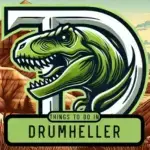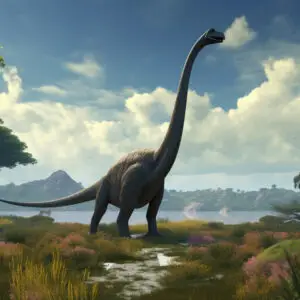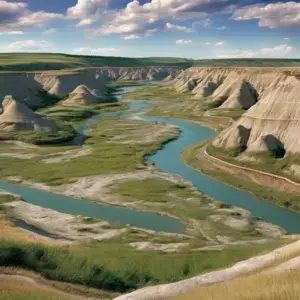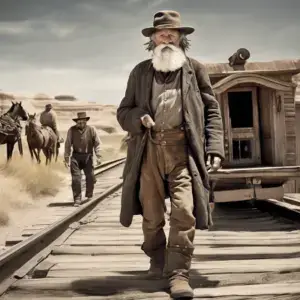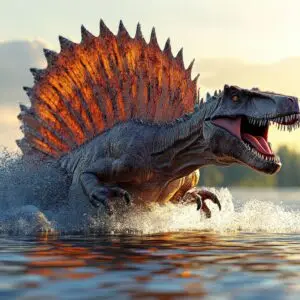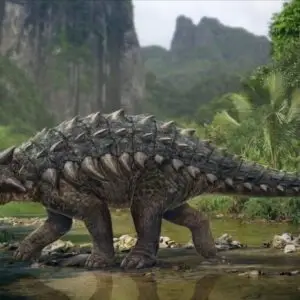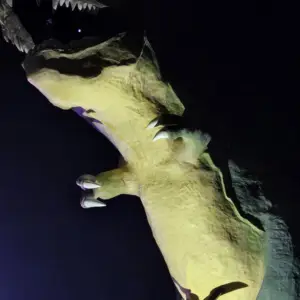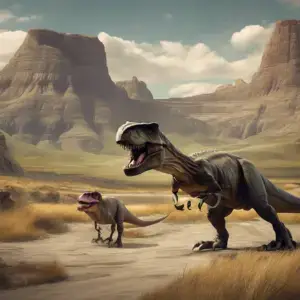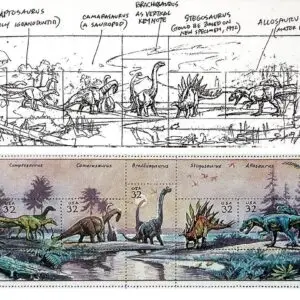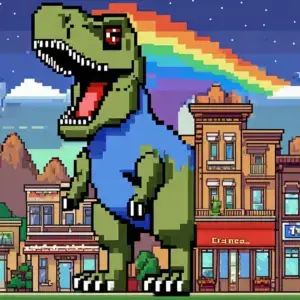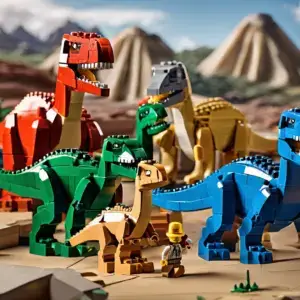Stegosaurus: Plates, Spikes, and Jurassic Wonders
AJ
Things to do in Drumheller
Uncover Stegosaurus’ funky plates, spiky tail, and tiny brain in this Jurassic gem of a read.
Picture a dinosaur strolling through the Jurassic like a punk rocker with a hardware obsession—big plates sticking up from its back, spikes swinging on its tail, and a vibe that says “don’t mess with me.” That’s Stegosaurus, a plant-munching icon that roamed North America 150 million years ago, turning heads with its wild looks. It wasn’t the biggest or the brainiest, but it had style and survival skills that made it a standout in a world of giants. Let’s wander back to the Late Jurassic and dig into the funky, spiky, downright wondrous tale of Stegosaurus, a dino that proves you don’t need size to shine.
Plates That Popped
A Bony Billboard
Stegosaurus didn’t blend in—its back bristled with 17 to 22 bony plates, standing upright in two staggered rows from neck to tail. These weren’t tiny either; the biggest could hit 3 feet tall and wide, making it look like a walking art installation. Fossils from Wyoming’s Morrison Formation show them embedded in thick skin, not fused to the spine, so they wobbled a bit as it moved. Picture it lumbering through ferns, those plates catching the sun—some think they flushed red with blood vessels, a flashy signal to mates or a warning to predators like Allosaurus. It was 25 to 30 feet long and weighed 5 to 7 tons, a hefty frame topped with a prehistoric flair no one could ignore.
Heat or Show?
What were those plates for? Scientists have debated it like a Jurassic mystery novel. One idea is thermoregulation—they might’ve soaked up sun to warm its blood or fanned out heat on hot days, like solar panels with a cooling twist. Others argue they were pure display, maybe glowing with color to dazzle friends or foes. Fossils show grooves for blood vessels, backing the heat theory, but their odd shape screams “look at me” too. Maybe it was both—a practical perk wrapped in a showy package, turning Stegosaurus into a living radiator with attitude.
Spikes with a Sting
The Thagomizer’s Tale
That tail wasn’t just for balance—it ended in four wicked spikes, each 2 to 3 feet long, dubbed the “thagomizer” after a cartoon quip stuck with scientists. Swung with force, those spikes could puncture flesh or crack bone, a brutal defense against hungry jaws. One fossil shows an Allosaurus tailbone with a Stegosaurus spike hole—proof it landed hits. Picture it whipping that tail side to side, a 5-ton tank with a built-in mace, daring predators to step closer. At speeds up to 30 miles per hour, that swing was a Jurassic knockout punch.
More Than Defense
The thagomizer wasn’t just for fighting—it might’ve been a signal too. Fossils suggest Stegosaurus lived in loose groups; a tail flick could’ve warned the herd or settled spats with rivals. Those spikes weren’t dainty—thick at the base, sharp at the tip, they were built to last. Some think it even used them to herd plants, nudging branches into reach. It was a multi-tool tail, blending brawn with a bit of social flair, a spiky surprise that kept Stegosaurus in the game.
A Tiny Brain in a Big Body
Walnut-Sized Wonder
Here’s the quirky bit—Stegosaurus had a brain the size of a walnut, maybe 3 ounces, rattling around in a 5-ton body. That’s tiny even for dinos, tucked in a skull barely bigger than a grapefruit. It handled the basics—walking, eating, swinging that tail—but don’t expect deep thoughts. Fossils show a small braincase, yet it thrived for millions of years, so smarts weren’t its game—survival was. Picture it plodding along, plates glinting, brain on autopilot, a simple soul in a complex world.
Second Brain Bust
Old tales claimed it had a “second brain” in its hips to run that tail, a nerve hub to pick up the slack. Fossils debunked that—it was just a big nerve cluster, not a brain, boosting signals down its spine. Still, the myth stuck, fueling Stegosaurus lore. That tiny head didn’t need backup; it got by on instinct, proving you don’t need a big brain to rock big plates and bigger spikes in the Jurassic wilds.
Life in the Jurassic Jungle
Grazing with Giants
Stegosaurus roamed the Morrison Formation alongside Brachiosaurus and Diplodocus, a lush Jurassic scene of rivers and forests. It munched low shrubs and ferns with peg-like teeth, stripping greens at ground level while long-necks took the canopy. Fossils show bite marks from Allosaurus, so it wasn’t all peace—those plates and spikes kept it safe. Tracks in Colorado hint at herds, maybe family groups trudging together, tails swaying like warning flags. It was a slow mover, topping out at 5 miles per hour, but its armor made speed less of a worry.
From Egg to Elder
Hatchlings popped out small—2 feet long—soft-plated and vulnerable. They grew fast, plates hardening by their teens, reaching 20 feet in a decade. Fossils show growth rings, suggesting a 20-to-30-year life, each year adding bulk and battle scars—cracked plates, healed ribs—from tussles with predators or rivals. Adults stood firm, a spiky wall against the Jurassic chaos, living long enough to leave their mark in stone and soil.
A Fossil Favorite
Digging Up a Star
Stegosaurus hit the big time in 1877 when Othniel Marsh named it from Wyoming bones—a plate so big it stunned him. Since then, dozens of skeletons have surfaced, from Utah to Portugal, with Colorado’s Dinosaur Ridge boasting tracks and bones galore. The “Stegosaurus in the Room” at Denver’s museum shows a full mount, plates towering, while casts grace halls worldwide. One find—a near-perfect tail—shows the thagomizer mid-swing, a fossil snapshot of its spiky glory. It’s a dino that keeps giving, each dig adding to its Jurassic fame.
Pop Culture Punk
From *The Land Before Time* to museum gift shops, Stegosaurus is a fan favorite—those plates and spikes make it a toy aisle king. Fossils fuel its legend; a 1980s comic gave us “thagomizer,” now a legit term. It’s not a bird kin, but its quirky charm echoes in armadillos—tough, plated survivors. Each bone tells a tale of a dino that didn’t need to roar—just stand out, a Jurassic punk that rocked its world.
Stegosaurus wasn’t the smartest or the fastest, but it was a plated, spiky wonder that owned the Jurassic stage. With flair and fight, it’s a dino that proves style can outlast size every time.
